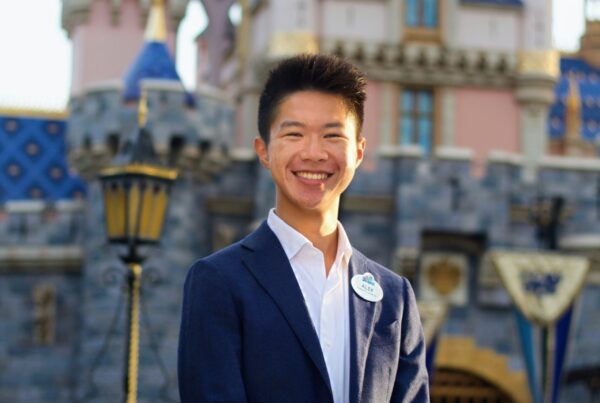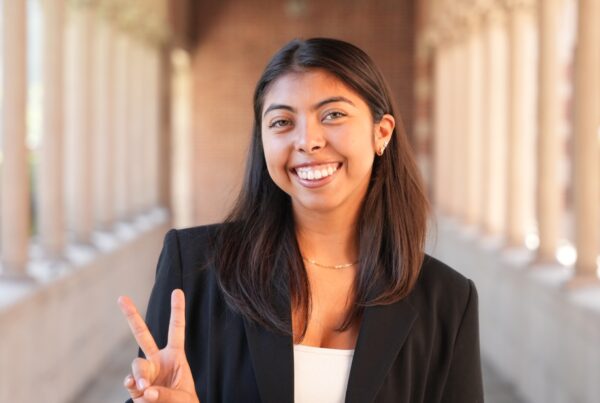This is a guest blog entry written by Valeria Hernandez Echegaray. If you want to read more stories, visit viterbiadmission.usc.edu/latinxlives.
Hello! My name is Valeria Hernandez Echegaray, I am a sophomore studying Industrial and Systems Engineering with a minor in News Media and Society. I was born and raised in Puerto Rico, where I went to the same school since I was in preschool and had a graduating class of 42 students. I had always been surrounded by LatinX people, Spanish-speakers, and people whose experiences were not too far different from mine.
As I was looking at colleges, I was told that USC had a large population of LatinX people, which would help me feel more at home. While that first statement rang true, feeling a part of this community was not a seamless experience. I lived in a suite where three of us were latinas, expecting to find a mutual understanding between the three of us, but that was far from the truth. Each of us had experiences that were extremely different: my suitemate from New Jersey, with Peruvian-Salvadoran heritage, had a completely different story than my Mexican-American roommate from El Paso and both their experiences were ones that I couldn’t relate to. To me, this was a microcosm of my first weeks as a freshman– knowing a grand total of five Puerto Ricans in a campus with over nineteen thousand students.
For a while, I tried to cure my homesickness by finding any aspect of Puerto Rico I could; I would scour the internet for Puerto Rican restaurants, go to parties that would play reggaeton, and splurge on anything I saw that reminded me of home. I felt that the nuances of my identity alienated me from the rest of the LatinX community. That is not to say I expected our experiences to be the exact same, but I did feel that LatinX people from the mainland US could relate a lot more to each other, the same way international LatinX students connected amongst themselves, leaving me in an awkward limbo, not being able to fully identify with either. I had convinced myself that no one outside of the Puerto Rican bubble could ever understand what I felt and, to an extent, that was true. However, I still tried to get involved with the rest of the LatinX community on campus, mainly through SHPE but also through my classes and the people in my dorm. What I found was that, although these people had never lived through my experiences, they were willing to listen and empathize with me, the same way I would have an open ear when they would share their stories.

In the end, I did find places where I could eat carne frita and tostones like at home and the spots to dance salsa and reggaeton on a Friday night, but most importantly, I found people that would jump on board with me without knowing the steps. Both inside and outside the LatinX community, I found people that would actively seek to understand my experience coming from Puerto Rico and would bring me entirely new perspectives based on where they came from, allowing me to become a more informed person myself. Through them, I have gained a better understanding of what it is like to be a first generation student, a first generation American, an immigrant, living on the border, and so many experiences that I haven’t lived through and in many cases, never will. Now, rather than feeling intimidated by the differences, I embrace them as an opportunity to learn and become a better person myself; something that would have never been possible if I would have limited myself to the Puerto Rican community.

















